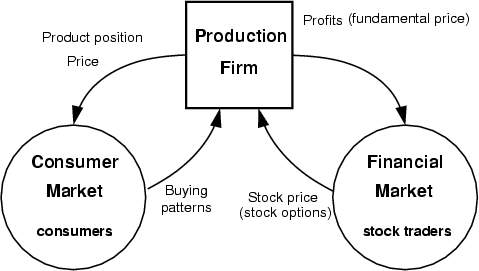Section 12: BUSINESS, ECONOMY – INVESTMENTS


THE VOICE OF INTERNATIONAL LITHUANIA
|
VilNews has its own Google archive! Type a word in the above search box to find any article.
You can also follow us on Facebook. We have two different pages. Click to open and join.
|
Tue, 18th January, 2011 - Posted by - (2) Comment

Lithuania has become one of the biggest victims of the global economic crisis. The economy has shrunk dramatically and the hangover from Soviet rule continues to cast a long shadow over domestic politics and foreign affairs. Still, in a recent Hard Talk session with the BBC, Prime Minister Andrius Kubilius insisted that the country's economy is stabilising.
Most analyst believe that, in 2011, Lithuania’s GDP growth will be about 3 percent; exports will rise approximately 11 percent, while the average salary will go up 3 percent. The high unemployment rate will, however, remain one of the biggest problems. It will probably go down a bit, but it will remain high overall – about 16 percent. An unemployment decrease should be related to laying a general foundation for economic growth. It is very important not to adopt what at first sight seems attractive, but, at the end of the day could be situation-worsening decisions; this could be, for example, not to increase the minimum wage. The shadow economy will also remain a burning head ache for the government, and a very bright scenario for 2011 is therefore not likely.
Tue, 18th January, 2011 - Posted by - (0) Comment
Tue, 18th January, 2011 - Posted by - (1) Comment
Lithuania’s budget deficit will remain “high” for several years, because of swelling government debt, and weigh on the country’s credit ratings, Moody’s Investor Service concluded in 2010. Lithuania’s economic recession, the deepest since the fall of communism 20 years ago, is undercutting the government’s efforts to narrow the budget gap, which swelled to about 9.5 percent of gross domestic product last year. The government of Prime Minister Andrius Kubilius cut spending and raised taxes to save about 9 percent of GDP last year. “The government’s budget deficit is still very high, and will remain high for several more years, causing a significant increase in government debt,” Orchard said. “We continue to assess the evolution of both the economy and government finances to determine whether the rating should remain at Baa1 or be downgraded to Baa2.” Moody’s rates Lithuania’s sovereign debt Baa1, the third- lowest investment grade.
The Moody rating, which was cut twice in 2009, has a negative outlook.…
Tue, 18th January, 2011 - Posted by - (24) Comment

Despite some progress in developing the domestic financial markets over the last two decades, the overall liquidity of the markets remain inadequate for any large scale development in Lithuania. At the same time, the corporate debt market remains negligible. Overall, among the potential factors hindering development of the securities markets in Lithuania are the small size of the domestic market, lack of institutional investors (pension funds, mutual funds etc.), prohibition of issuing debt securities denominated in foreign currencies domestically and a poor investment culture. For the above reasons the Lithuanian financial markets provide only limited resources for the private sector. For example, the value of private...…
VilNews e-magazine is published in Vilnius, Lithuania. Editor-in-Chief: Mr. Aage Myhre. Inquires to the editors: editor@VilNews.com.
Code of Ethics: See Section 2 – about VilNews. VilNews is not responsible for content on external links/web pages.
HOW TO ADVERTISE IN VILNEWS.
All content is copyrighted © 2011. UAB ‘VilNews’.